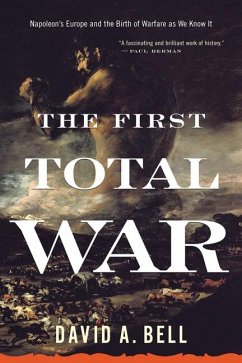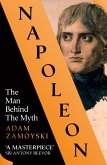The twentieth century is usually seen as "the century of total war," but as the historian David Bell argues in this landmark work, the phenomenon actually began much earlier, in the age of Napoleon. Bell takes us from campaigns of "extermination" in the blood-soaked fields of western France to savage street fighting in ruined Spanish cities to central European battlefields where tens of thousands died in a single day. Between 1792 and 1815, Europe plunged into an abyss of destruction, and our modern attitudes toward war were born. Ever since, the dream of perpetual peace and the nightmare of total war have been bound tightly together in the Western world-where "wars of liberation," such as the one in Iraq, can degenerate into gruesome guerrilla conflict.
With a historian's keen insight and a journalist's flair for detail, Bell exposes the surprising parallels between Napoleon's day and our own in a book that is as timely and important as it is unforgettable.
Hinweis: Dieser Artikel kann nur an eine deutsche Lieferadresse ausgeliefert werden.
With a historian's keen insight and a journalist's flair for detail, Bell exposes the surprising parallels between Napoleon's day and our own in a book that is as timely and important as it is unforgettable.
Hinweis: Dieser Artikel kann nur an eine deutsche Lieferadresse ausgeliefert werden.








